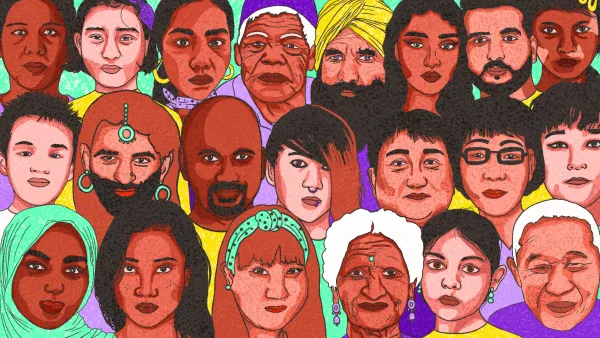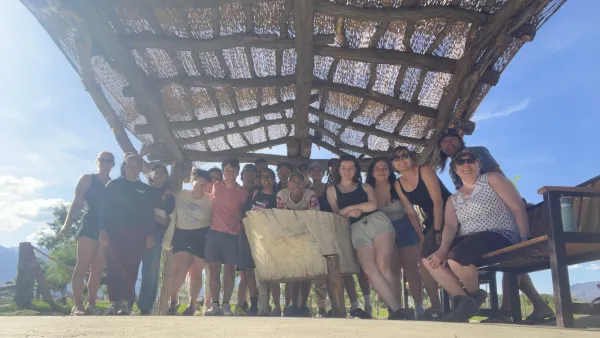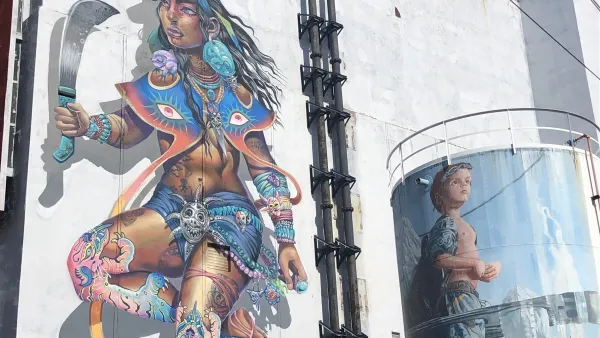Good Evening everyone. Thank you for allowing me these few moments to relay a few of the things that keep me up at night. When I first received this invitation about a month ago, I immediately started a draft, editing and crafting along the way until I had come to a point of satisfaction, and had actually started with mirror practice. I had what I thought was a viable talk. And then last week happened. And the evil and odious stench of racism once again raised its ugly head. You know, it never, ever goes away. It just festers there under the surface of our lives… waiting for something or someone to beckon it forward. And I tore that first manuscript in half. And I started all over again.
The violence we saw flashed across our screens this past week is, unfortunately, nothing new. The annals of humankind are replete with instances of social uprising and revolution. World wars have been fought over the doctrine of good versus evil, and the lives of common people are filled with daily instances of social and racial unrest. These latest images were shocking, atrocious, and worrisome, yes - but not new. What is new, however, was the players, and the manner in which this type of phenomenon is broadcast to the masses. No longer relegated to little, hidden from the public eye, nondescript pockets here and there, these events are immediately transmitted across the globe in real-time. Similar to journalists taking television cameras into Birmingham and Selma and finally giving the world a glimpse of the horror of Jim Crow racism in the 60’s, we now carry these miniature cameras and video recorders in our pockets to mark these events and bring tyranny and racism out into the open. These same devices that show in real-time, for instance, the murder of a man reaching for his wallet after a traffic stop, or the horrific murder of a man being choked to death on a public street corner for selling cigarettes, or the senseless gunning down of a child playing with a toy gun on the playground. Just to name a few. And, just in case there is anyone out there who might think otherwise, my family’s position is that, our black fathers, and uncles, and brothers, and son’s lives - also matter! Just as the lives of whites, and blues, and browns, and Canadians, and Irish Catholics, and those people across the world in South Africa and deep within the Brazilian rain forest, lives matter - so too, does our black lives matter! That statement, that cry, is in no way, and in no form, exclusionary.
What was also new with the events of this past week was, unfortunately, the response from the highest level of government, demonstrating a pathetic and irresponsible ignorance of history, a blatant misrepresentation of the facts, and a manifest and incompetent false-equivalency.
Bless the life and legacy of Heather Heyer, the brave young lady who lost her life last week in that horrific display of hatred - while serving on the front lines of protest, who left us with the prophetic premonition of, “If you’re not outraged, then you’re not paying attention.” Echoing Heather’s warning, the ancient wisdom found in the eleventh century Masoretic text of the Hebrew language provides the citizenry of today with the same, ominous admonition against complacency and complicity in the face of evil. Translated in the sixteenth century English language, it reads: When evil men are allowed to spew hatred unabated and without challenge, and wise men remain silent, the innocent are rendered helpless. But when men of courage and conviction make their voices heard, then justice will prevail across the land and peace will return, once again, to the people.
When Chancellor Wrighton penned his letter this past week to the university community and the wider society outside of these walls, with the sentiment, “I hope for a day when it will no longer be necessary to proclaim, this is not us, this is not who we are, or who we want to be,” I wholeheartedly agreed. It is not who we want to be. But, in continuing this proclamation, he reminded us: “But Charlottesville is yet another heartbreaking reminder that this is us. This is our reality.” As I read that statement, images from my past came rushing up at me with instances of where I had been subjected to the unforgiving bigotry of racial bias. Yes, this is our reality. For as far back as my memory takes me, the heinous specter of racism has been an ever-present foe and a hideous stain on an otherwise wonderful life. “If you’re not outraged, she said, then you’re not paying attention.” Well, I’m outraged and I’m paying attention, and I emphaticly embrace and accept your charge, sir, as you state in the closure of your letter that, “We, at Washington University, are going to keep up the effort, and continue to work toward a more inclusive, accepting and welcoming community. Join us.” Well, I join you, sir.
Let me tell you a little story that changed the trajectory of my life. Have you ever heard of the ASVAB? The Armed Services Vocational Aptitude Battery exam? It is used as a tool, primarily administered to high-school juniors and seniors, for qualification and job placement. Recruiters liken it to a SAT on steroids. Covering a number of batteries, it provides the placement officer a pretty accurate assessment of the applicant’s chances for success in any of the hundreds of jobs in the military. I didn’t take the ASVAB in high school. In my early twenties, while attending a local community college and working a job that was going nowhere, I just happened to be walking down Grand Boulevard one afternoon and inadvertently walked into the Armed Forces Recruiting office. Took the test and a couple days later had a recruiter from every branch call my home wanting to make an appointment with me. Turns out that I had scored in the upper five percent of test takers, nation-wide, and therefore qualified for every job in the military with every branch. Receiving promises from all the recruiters of a future complete with all the wonders of life, the Air Force recruiter sealed the deal with the promise of a guaranteed job as an Air Force aviator.
When I first stepped foot into the United States Air force’s flight school for the C-130 transport aircraft in Wichita Falls, Texas, I was immediately greeted with a startling, and indisputable unwelcoming attitude by most of my instructors, and a handful of my fellow students. I wasn’t outwardly shunned, but it was clear that I wasn’t welcome. I imagine there were some in that group who just came short of asking, “What are you doing here, boy?” You know, we were down there in good ole Texas. The South. But that was okay, I wasn’t in the least deterred, because I knew that I belonged, my placement scores said that I belonged, and my sense of self said that, not only did I belong, but I deserved to be there. And so, I settled in. It was, to say the least, a challenging course, consisting of essentially four weeks of dense material packed into a weeks-worth of instruction, over a long, eight-week course. At the end of each week, a test was administered covering all of the material provided that week, requiring an 85-percentage passing grade. If an airman fell short of that mark, a re-test was given the next Monday morning.
And if Monday’s results weren’t satisfactory, you’d wash out and be sent home. Every Monday afternoon, after lunch, we would return to the barracks to find empty bunks. That first Friday, as we all anxiously gathered around the First Sergeant’s office door where the scores were posted, I’ll never forget the look on one of my fellow airman’s face when we all discovered, on that yellow slip of paper tacked to the door, that, not only had I scored higher than him, but had the top score in the entire squadron.
And then something happened that would change my life forever. He pulled me aside and told me that all of his life he had heard that blacks just didn’t possess the intellectual ability to compete on the same plane as whites. He also confided in me that he was taught, from an early age, that we were constructed differently. While describing in horrific details, traits that his father and uncles had told him about the physical makeup of blacks. Much too vile and repulsive to share the details with this audience. And with tears in his eyes, he took my hand and apologized. Shocked at what I had just heard, and surprised by his courage and honesty, I likewise started tearing up as I watched my classmate struggling with the weight of all those years of racial bias and hatred finally being lifted. I returned his apology with my own, telling him that I was sorry for him having to lug this stuff around his entire life. We became fast friends from then on. Thick as thieves. We’d get into trouble together.
That incident flipped a switch in me, and was a pivotal moment in my young life. Everything my father had taught me about how best to counter the racial animus that would I would encounter in life came rushing back to me. You see, as I was growing up, whenever I would approach my Pops, soliciting advice on how best to deal with the racial manure that was being heaped on me, he would first say, “Well, you know son, life ain’t been no crystal staircase for me either.” And then he’d chuckle, which would always calm me down as he loved to quote Langston Hughes. He would then sit me down and systematically, and in a nurturing manner, provide me the tools he felt I would need to prevail in a world where opportunities would inevitably be denied me because of the color of my skin. He would render me such instruction as “never stoop down to another man’s level, but instead bid them rise up to yours.” This is what Michelle was referring to when she said, “When they go low, we go high.” He also told me, on a number of occasions, that a “healthy appetite for reading, coupled with a keen hunger for knowledge would serve me well.” “Education is the key, son, education is the key,” he would say, over and over.
So, with this refreshingly transparent revelation from my classmate—and this is where the transition happened—I realized at that moment, that I could no longer afford to conduct myself in the same manner as the next guy. Gone were the days of carelessly frittering my life away in the blissful rapture of youth. I had received the wise counsel of my father, possessed the innate aptitude, and now was granted the opportunity, howbeit materialized in an unlikely friend’s personal confession, that provided the catalyst and drive for my success going forward. And so, from that moment forward, when my classmates would venture out on the weekends to party, play pool, and chase girls, I buried my head in my flight manuals. I was on a different mission. That of breaking down barriers and proving my father’s advice sound, and the attitudes of the other nay-sayers in that school wrong. Eight weeks later, I graduated second out of a final class of eighteen. And for the next twenty years, graduated in the top five percent in every military school and class I attended. Becoming, at one point, the most highly qualified crewmember in my position in the entire Air Force.
And, let me insert a little footnote here by saying, that in all those years that I flew the global airways, the majority of the people that I met in the 48 states and 50 countries that I visited, regardless of their dialect, the hue of their skin, or the cultural norms of their society—at least from my observation—were genuine and well-meaning. Most of the people I met across the world simply wanted a decent cover to shield them from the weather; a daily bowl of soup and a piece of bread for nourishment; they wanted a safe place to lay their heads at night; and unlimited opportunities for their children to be successful. This was true with most of the people I met and communicated with. Because of this drive, this quest for success, upon retiring from the military, my experience in the corporate arena found me granted promotions and opportunities years ahead of others who had been languishing and simply waiting for their ships to sail.
And so, it is, armed with this insatiable desire to succeed that I, upon leaving the corporate world and returning to the life of a scholar, when first presented with the many opportunities that University College had to offer me, eagerly reaching for everything within my grasp: Dean’s list every semester - check. Honors student - check. You mean, I can work on an undergraduate and graduate degree at the same time, I asked? Check, Check, Check - sign me up. This mainstay of rigorous scholarship was in keeping with my plan of academic excellence, and is what I had been accustomed to. I had found a comfortable home in University College, and with its crew. And now I stand at the threshold of joining with you this next spring on the other side of those doors as I receive academic recognition from one of the finest institutions of higher education, the world over, with a Bachelor of Science degree in History—with Latin Honors, mind you—in one hand, and an Masters in American Cultural Studies in the other. And on that day, in my mind’s eye, I can imagine my Pop’s voice, who is now resting with his ancestors, God rest his soul, saying to me as I receive those rewards for my hard work, diligence and tenacity, well done, son… well done.
Thank you.



